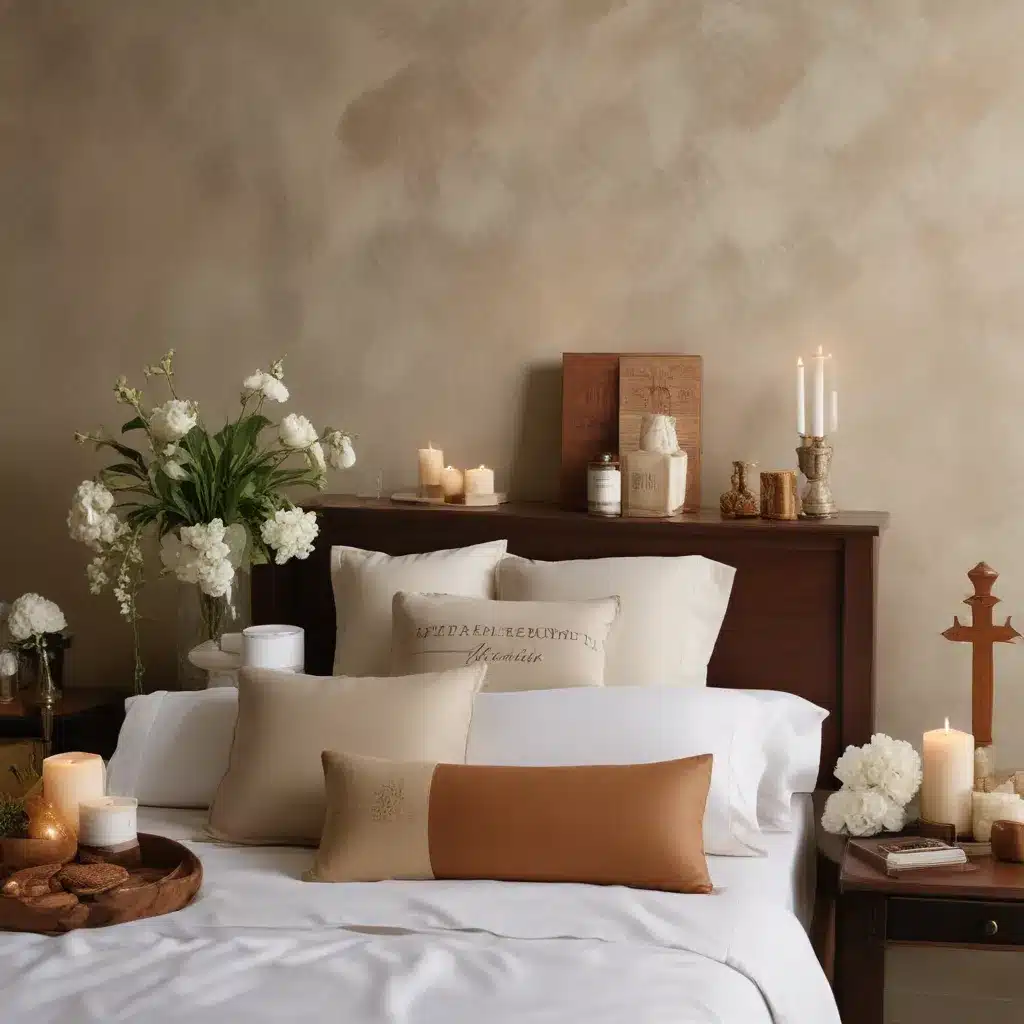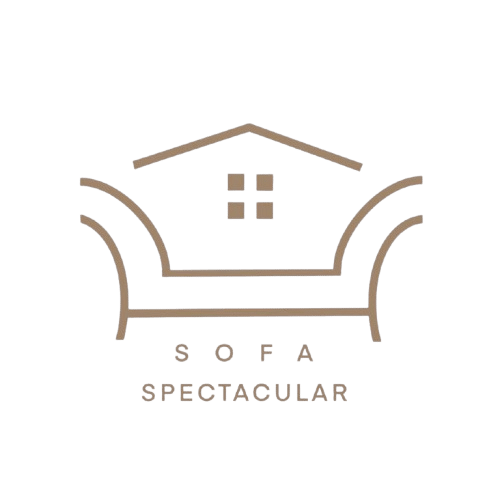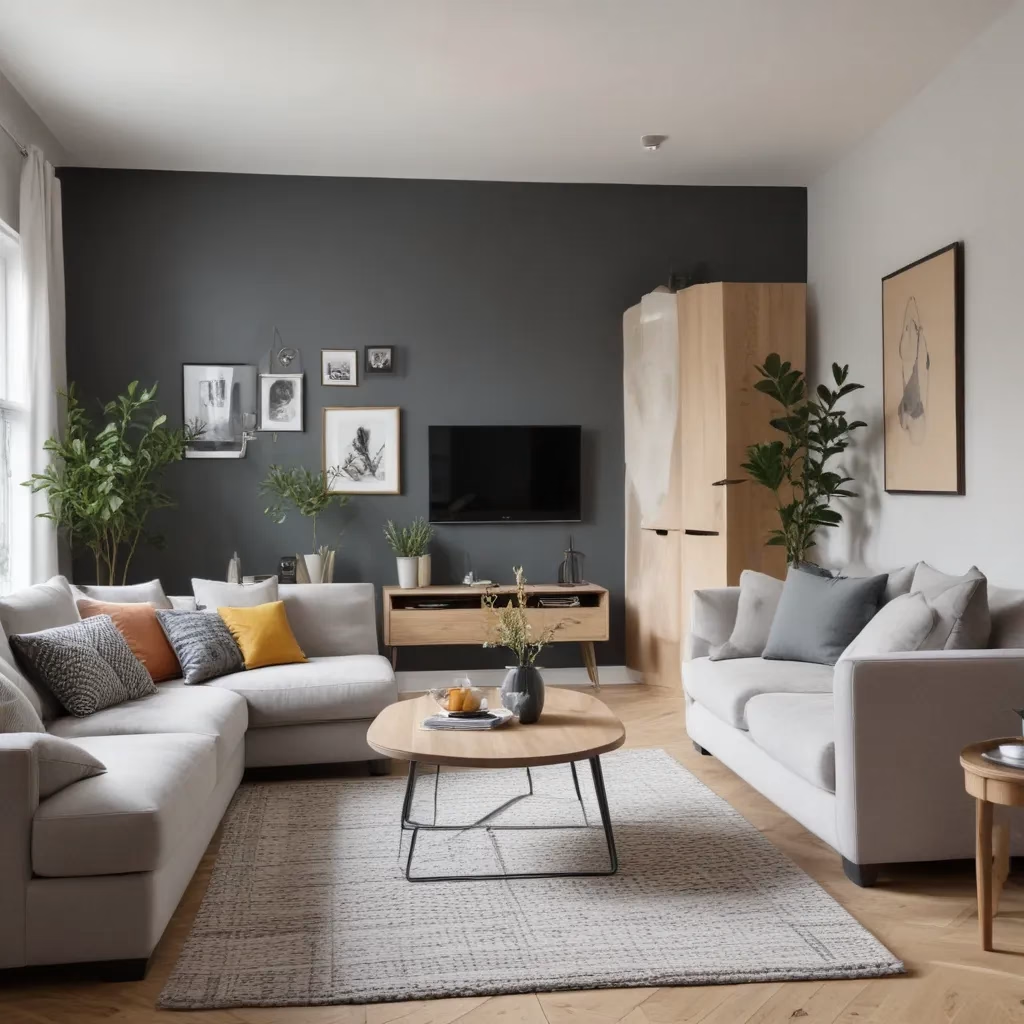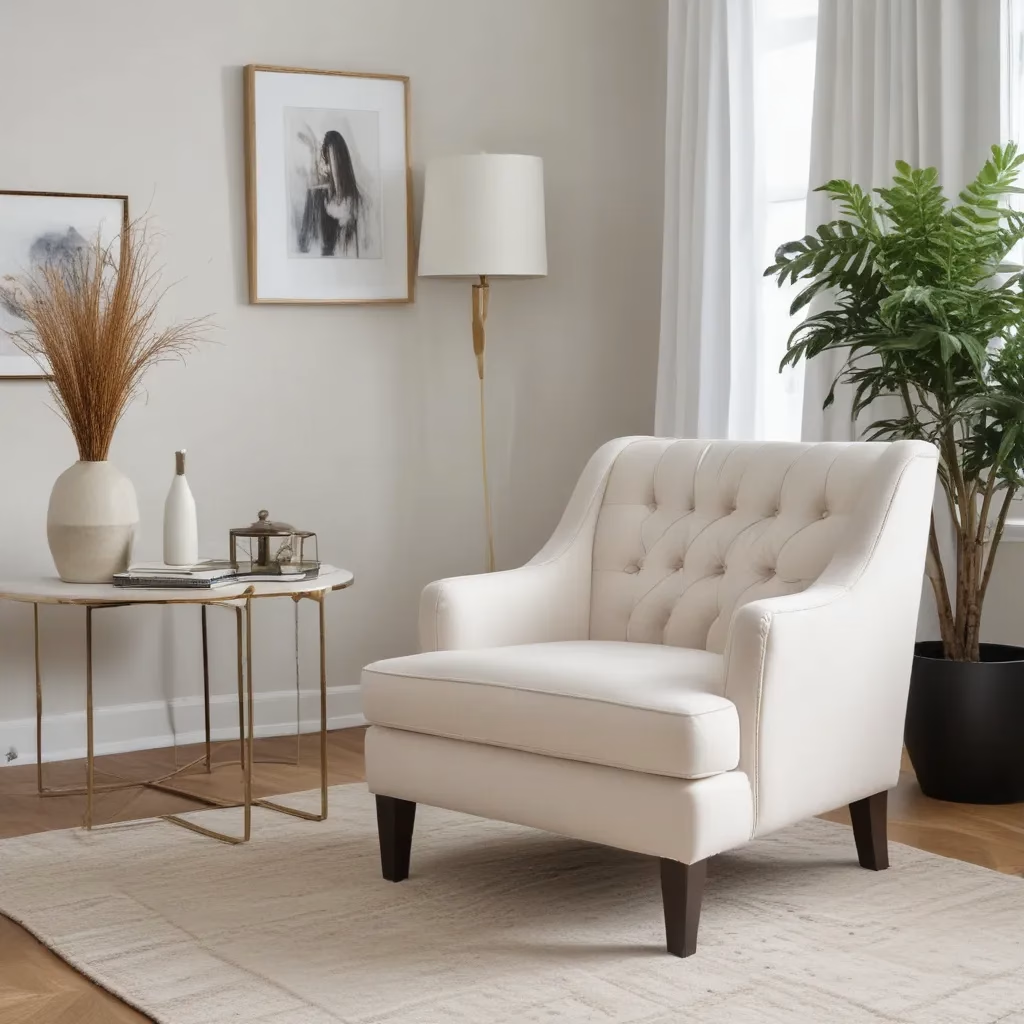
The Rise of Bespoke Sofas in UK Homes
In recent years, the UK furniture market has seen a significant shift towards personalized, handcrafted sofas. Homeowners are increasingly seeking unique pieces that reflect their individual style and provide unparalleled comfort. This trend towards bespoke furniture is not just about aesthetics; it’s about creating a truly personal space where one can relax and unwind.
The appeal of handcrafted sofas lies in their ability to be tailored to specific needs and preferences. From the frame construction to the fabric selection, every aspect can be customized. This level of personalization ensures that the sofa fits perfectly within the home’s decor and meets the exact requirements of the user.
Moreover, the quality associated with handcrafted furniture is often superior to mass-produced alternatives. Skilled artisans pay attention to every detail, resulting in sofas that are not only beautiful but also built to last. This longevity makes bespoke sofas a wise investment for those looking to create a luxurious and enduring living space.
Choosing the Right Materials for Your Bespoke Sofa
When it comes to creating a personalized sofa, the choice of materials is paramount. The right materials can elevate a sofa from a simple piece of furniture to a luxurious centerpiece. Here’s a comparison of popular materials used in bespoke sofas:
| Material | Durability | Comfort | Maintenance | Aesthetic Appeal |
|---|---|---|---|---|
| Leather | High | High | Medium | High |
| Velvet | Medium | High | High | High |
| Linen | Medium | Medium | Medium | Medium |
| Cotton | Low | High | High | Medium |
| Wool | High | High | Medium | High |
Leather remains a popular choice for its durability and timeless appeal. It ages beautifully and can withstand daily use, making it ideal for families. Velvet, on the other hand, offers a luxurious feel and rich appearance, perfect for those seeking a touch of opulence in their living space.
For a more casual look, linen and cotton blends provide comfort and breathability. These materials are excellent for creating a relaxed atmosphere but may require more frequent cleaning. Wool is an excellent option for those seeking warmth and natural resistance to staining.
When selecting materials, consider not only the aesthetic but also the practical aspects. Think about how the sofa will be used, who will be using it, and how much maintenance you’re willing to undertake. A professional upholsterer can provide valuable advice on which materials will best suit your lifestyle and design preferences.
Design Elements That Define Luxury Sofas
The luxury of a bespoke sofa extends beyond its materials. Design elements play a crucial role in creating a piece that truly stands out. Here are some key features to consider:
Frame Construction
The foundation of any quality sofa is its frame. Hardwoods such as oak, beech, or ash are preferred for their strength and durability. A well-constructed frame should be joined using traditional methods like dowelling or mortise and tenon joints, which provide superior stability compared to staples or glue alone.
Cushion Filling
The filling of your sofa cushions greatly affects comfort and longevity. High-density foam wrapped in a layer of soft fibre or feathers offers a good balance of support and comfort. For ultimate luxury, consider cushions filled with a combination of goose down and feathers, which provide a soft, enveloping feel.
Suspension Systems
The suspension system is crucial for comfort and durability. Eight-way hand-tied springs are often considered the gold standard, offering superior support and preventing sagging. However, high-quality serpentine springs can also provide excellent comfort at a lower cost.
Tailoring and Finishes
The hallmark of a truly luxurious sofa is in the details. Look for features such as:
- Hand-stitched seams: These not only look more elegant but also tend to be stronger than machine-stitched alternatives.
- Piping: This adds definition to the sofa’s silhouette and can be customized to complement or contrast with the main fabric.
- Button tufting: A classic detail that adds texture and visual interest, particularly suited to traditional or Chesterfield-style sofas.
- Nail head trim: This can add a touch of glamour and define the lines of the sofa.
By carefully considering each of these elements, you can create a sofa that is not only comfortable but also a true reflection of your personal style. Remember, the beauty of a bespoke piece is that you have control over every aspect of its design.
Integrating Your Bespoke Sofa into Your Home’s Decor
Once you’ve created your perfect bespoke sofa, the next step is to integrate it seamlessly into your home’s interior design. This process involves more than simply placing the sofa in a room; it’s about creating a cohesive and harmonious space that showcases your new centrepiece.
Colour Coordination
The colour of your sofa can either complement or contrast with your existing decor. If you’ve chosen a bold colour or pattern for your sofa, consider using neutral tones for the surrounding decor to allow the sofa to stand out. Conversely, if your sofa is in a neutral shade, you can use vibrant accessories to add pops of colour to the room.
Texture Play
Introducing different textures can add depth and interest to your living space. If your sofa has a smooth leather finish, consider adding plush throw pillows or a soft wool rug to create textural contrast. For velvet sofas, pair with sleek metal or glass accessories to balance the richness of the fabric.
Lighting Considerations
Proper lighting can enhance the beauty of your bespoke sofa. Consider installing adjustable lighting options that allow you to highlight your sofa’s best features. A combination of ambient, task, and accent lighting can create a warm and inviting atmosphere that showcases your furniture to its best advantage.
Accessorizing Your Sofa
The right accessories can elevate your sofa from beautiful to extraordinary. Here are some ideas:
- Throw pillows: These can add colour, pattern, and texture. Mix and match different sizes and shapes for a curated look.
- Throws: A carefully draped throw can add a touch of cosiness and style.
- Side tables: Choose tables that complement the style of your sofa. For example, a sleek glass table can contrast beautifully with a traditional leather sofa.
- Area rugs: A well-chosen rug can define the seating area and tie the room together.
Remember, the goal is to create a space that feels cohesive and reflects your personal style. Your bespoke sofa should be the star of the show, but it should also harmonize with the rest of your decor.
Maintaining Your Luxury Sofa
Investing in a bespoke sofa means committing to its care and maintenance. Proper care will ensure that your sofa remains beautiful and comfortable for years to come. Here are some tips for maintaining different types of luxury sofas:
Leather Sofas
- Regular cleaning: Dust weekly with a soft, dry cloth. For deeper cleaning, use a leather cleaner specifically designed for your type of leather.
- Conditioning: Apply a leather conditioner every 6-12 months to keep the leather supple and prevent cracking.
- Avoid direct sunlight: Position your leather sofa away from direct sunlight to prevent fading and drying.
Fabric Sofas
- Vacuuming: Use the upholstery attachment to vacuum your sofa weekly, paying special attention to seams and crevices.
- Spot cleaning: Address spills immediately using a clean, damp cloth. Avoid rubbing, which can spread the stain.
- Professional cleaning: Have your sofa professionally cleaned every 12-18 months, or more frequently for high-traffic areas.
Velvet Sofas
- Brushing: Use a soft-bristled brush to maintain the nap of the velvet, brushing in the direction of the pile.
- Steam cleaning: For stubborn wrinkles or marks, use a handheld steamer, holding it several inches away from the fabric.
- Rotate cushions: Regularly rotate and flip cushions to ensure even wear.
By following these maintenance tips, you can preserve the beauty and comfort of your bespoke sofa for many years. Remember, prevention is key – using arm covers and avoiding eating or drinking on the sofa can go a long way in preventing damage.
The Environmental Impact of Bespoke Furniture
In today’s environmentally conscious world, many consumers are considering the ecological impact of their furniture choices. Bespoke sofas, when crafted responsibly, can be a more sustainable option compared to mass-produced alternatives.
Longevity and Quality
One of the primary environmental benefits of bespoke furniture is its longevity. High-quality, custom-made sofas are built to last, reducing the need for frequent replacements. This longevity means fewer resources are used over time, and less furniture ends up in landfills.
Sustainable Materials
Many bespoke furniture makers are now offering eco-friendly options for their sofas. These may include:
- Organic fabrics: Cotton, linen, and wool sourced from organic farms.
- Recycled materials: Fabrics made from recycled plastics or other materials.
- Sustainable wood: Frames made from FSC-certified wood or reclaimed timber.
Local Production
Choosing a local craftsperson to create your bespoke sofa can significantly reduce the carbon footprint associated with transportation. Additionally, supporting local artisans helps to preserve traditional skills and boost the local economy.
Repair and Refurbishment
Unlike mass-produced furniture, bespoke sofas are often designed with repair and refurbishment in mind. This means that if a part wears out or your style preferences change, the sofa can be updated rather than replaced entirely.
When considering a bespoke sofa, don’t hesitate to ask about the environmental practices of the manufacturer. Many are proud of their sustainability efforts and will be happy to discuss their processes with you.
The Future of Bespoke Sofas in the UK
As we look towards the future, the trend for personalized, high-quality furniture shows no signs of slowing down. In fact, several factors are likely to drive further growth in the bespoke sofa market:
Technology Integration
Advancements in technology are making it easier than ever to visualize and customize furniture. Virtual reality and augmented reality tools allow customers to see how their bespoke sofa will look in their space before it’s even made. This technology reduces the risk of dissatisfaction and encourages more people to explore custom options.
Sustainable Innovation
As environmental concerns continue to grow, we can expect to see more innovative, eco-friendly materials being used in bespoke sofas. From fabrics made from recycled ocean plastics to bio-based foams, the future of luxury furniture is likely to be increasingly sustainable.
Modular Design
The desire for flexibility in home furnishings is driving a trend towards modular sofas. These pieces can be reconfigured to suit different spaces or needs, making them ideal for modern, multifunctional homes. Bespoke modular sofas allow customers to choose not only the fabrics and finishes but also the configuration that works best for their space.
Smart Furniture
The integration of smart technology into furniture is an emerging trend that’s likely to impact the bespoke sofa market. Features such as built-in charging ports, adjustable lumbar support, or even sensors that track usage patterns to optimize comfort could become more common in high-end, custom sofas.
Artisanal Appreciation
There’s a growing appreciation for craftsmanship and artisanal skills. This trend is likely to continue, with more consumers seeking out furniture that has a story and a connection to skilled craftspeople.
As these trends evolve, the bespoke sofa market in the UK is poised for exciting developments. For those looking to invest in a truly special piece of furniture, the future holds even more possibilities for customization, sustainability, and innovation.
Making the Decision: Is a Bespoke Sofa Right for You?
Deciding whether to invest in a bespoke sofa is a significant decision that requires careful consideration. Here are some factors to weigh up:
Pros of Choosing a Bespoke Sofa
-
Perfect fit: A custom sofa can be designed to fit perfectly in your space, ideal for unusual room layouts or specific size requirements.
-
Unique design: You have control over every aspect of the design, ensuring a truly one-of-a-kind piece.
-
Quality materials: Bespoke sofas often use higher quality materials than mass-produced alternatives, potentially lasting longer.
-
Comfort tailored to you: The sofa can be customized to your preferred firmness and style of seating.
-
Investment piece: A well-made bespoke sofa can last for decades, potentially offering better value in the long run.
Cons to Consider
-
Higher upfront cost: Custom-made furniture is generally more expensive than off-the-shelf options.
-
Longer wait times: Bespoke sofas take time to design and manufacture, so you’ll need to be patient.
-
Commitment: With so many choices, some people find the decision-making process overwhelming.
-
Resale value: While high-quality, the unique nature of a bespoke sofa might make it harder to resell if your tastes change.
Ultimately, the decision comes down to your personal priorities, budget, and lifestyle. If you value uniqueness, quality, and have specific needs that off-the-shelf furniture can’t meet, a bespoke sofa could be an excellent choice.
For those ready to explore the world of custom sofas, Sofa Spectacular offers a range of options to suit various tastes and requirements. Their expert team can guide you through the process, helping you create a sofa that’s truly spectacular and perfectly suited to your home.
Remember, a sofa is more than just a piece of furniture; it’s the heart of your living space. Whether you choose bespoke or not, invest time in finding a sofa that you’ll love coming home to every day.



